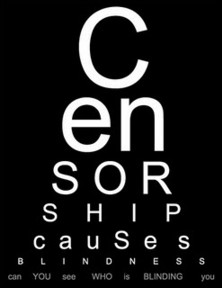
*
Asterisk not Asterix
Normally I refrain from correcting other people’s (spoken) grammatical errors. I think it is very rude to point out mispronunciations, incorrect usage of words, phraseology faux pas and sloppy syntax. However today I had to draw the line. I happened to overhear my boss, whilst talking on the phone, make a mistake I couldn’t ignore. Instead of saying “asterisk” she said Asterix. I think this is one of the most widespread grammatical mistakes made in the English language today, the majority of people who I happen to hear attempt the word asterisk erroneously say the name of the fictional comic book character from ancient Gaul created by Albert Uderzo, thereby instantly rendering the sentence complete gibberish and showing themselves to be well below average in the linguistic competency department.
So why is this? Can it be that these people have been exposed to the Asterix comic books but failed to take any notice in their English classes at school? Well that’s understandable I guess, but what happened after these people left school and had to make their own way in the world? Have they not heard of the word asterisk? Have they never read it? Did they not grasp the primary wordplay joke of Uderzo’s Asterix comics (the taking of everyday words and changing them into Gaulish and Frankish sounding names by suffixing them with the letters ix)? Have they never written it in a word processing program and seen the red line beneath it telling them there is no such word and the one the want ends in ‘isk’. I personally think the whole thing is self-perpetuating. The more people hear others say it the stronger their belief in their own misguided mispronunciation is, and so they continue the propagation of this widespread error. I wonder if when these people hear the correct pronunciation of asterisk they think the person they heard say it, mispronounced it themselves?
* Asterix (and Dogmatix)



3 comments:
I agree with everything you said in this post, except for the bit where you don't ordinarily correct people's grammar, pronunciation, etc. I absolutely live to do this (as you'd know - and clearly, for which you've probably held me in silent contempt now for years, it seems).
But no matter. My question is (although I notice you never respond to questions/comments posted on this 'ere blog) ... what did your boss say when you corrected her? Did she happily and almost-embarressedly admit she was wrong and move on? Did she give you a look that implied you were an idiot who spent too much time collecting licence plates to know anything about anything anyway? Did she deny it? Did she argue the point?
I'm dying to know! ...
Firstly let me state here and now that my New Year’s resolution is to post replies to any comments that from now on appear on my blog and explain that any previous lapse of response was entirely due to the tardiness of my blog management skills. By the time I had actually noticed any remark about a post it was a little late to reply, the moment had past as you might say. In addition to the above resolution I will be endeavouring to make my opinions known within the blogosphere.
In answer to your question Bevis, I am afraid that the response from my boss was disappointingly anticlimactic. In order to save her embarrassment I took her aside and quietly explained her error in an adult and understanding manner without any trace of patronisation (although I don’t think I entirely succeeded). She took all I said on board and admitted she had never heard of the word asterisk and thanked me for my advice, although it was obvious that the finer grammatical points of the English language were of little importance to her and she was humouring me to a degree, no doubt secretly praying I didn’t bring up the subject of her split infinitives.
I would, of course, have been given a look accusing me of idiocy by her if she in fact knew of my licence plate collecting habit, so it’s lucky for me that I keep my anorak firmly in the closet whilst at work. I simply cannot allow my colleagues to know anything about my sad collecting tendencies for fear of merciless ridicule.
I can solve all your problems with gramma ecetra - I cam acros this websight www.basicwritingskills.com - it loks gude - tri the free trile: you may find the answer to your woos or is that wows or woes
Post a Comment